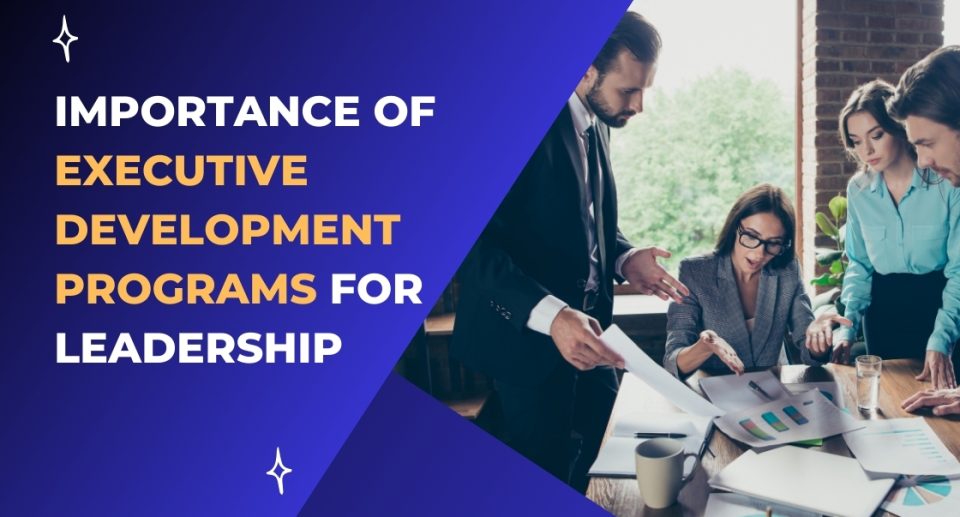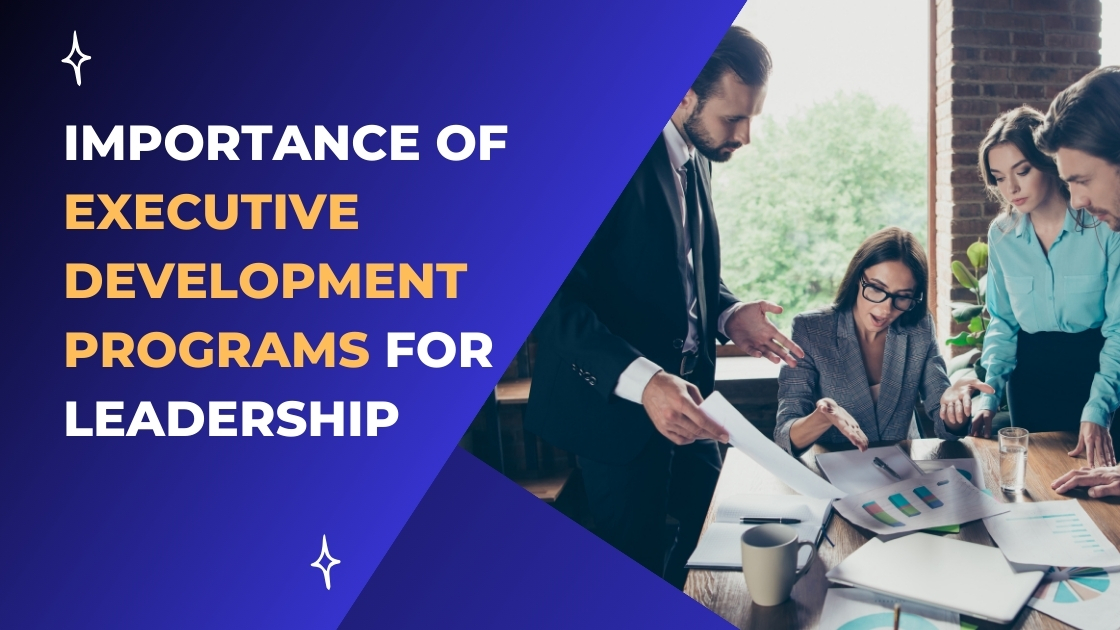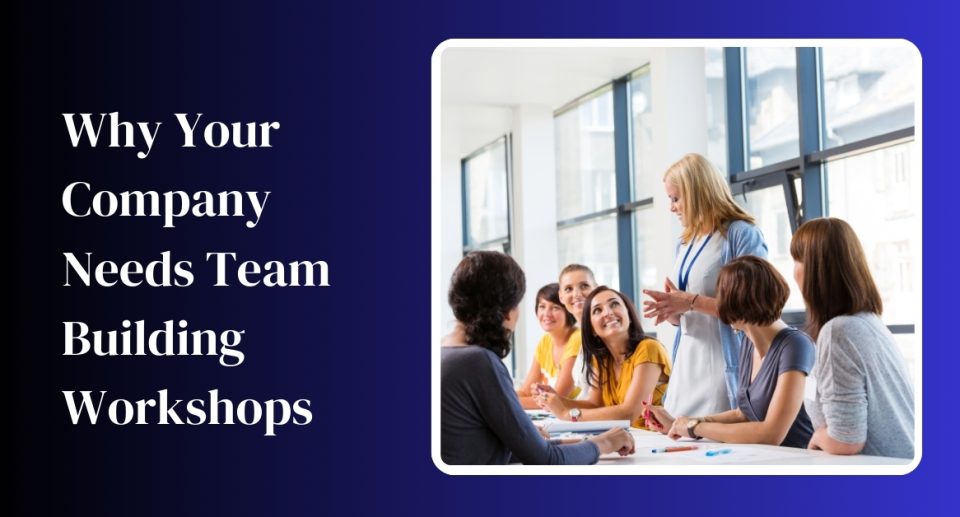What is an Executive Development Program?
An Executive Development Program (EDP) is a specialized training course designed for senior executives and leaders in companies. It helps them improve their skills in leadership, decision-making, and strategic planning. EDPs often involve workshops, case studies, and networking opportunities to prepare executives to tackle complex challenges and lead their organizations effectively.
What is the Significance of Executive executive Program?
1.Enhancing Leadership Skills
Executive Development Programs (EDPs) are tailored to enhance the leadership skills of senior executives. These programs equip leaders with the essential tools, knowledge, and strategies to thrive in competitive environments. EDPs blend theoretical lessons, real-life case studies, and interactive workshops to develop crucial skills such as strategic thinking, decision-making, and team management. The practical, hands-on approach of EDPs is particularly effective, engaging leaders in simulations and role-playing exercises that mirror real-world challenges.
These activities provide a safe space for leaders to practice making decisions under pressure and collaborating with diverse teams. By immersing participants in realistic scenarios, EDPs enable leaders to refine their abilities and apply new insights directly to their roles, ultimately enhancing their effectiveness and impact within their organizations.
2.Strategic Vision and Planning
Effective leadership hinges on the ability to develop and execute visionary strategies that drive organizational growth and sustainability. Executive Development Programs emphasize strategic vision and planning as fundamental to leadership excellence. Leaders are trained to formulate long-term goals aligned with their organization’s mission and values while considering external market trends, the competitive environment, and technological advancements.
Through these programs, leaders cultivate strategic thinking, enabling them to anticipate future challenges and opportunities, and position their organizations proactively in the marketplace. They learn to conduct comprehensive market analysis, perform scenario planning exercises, and leverage data-driven insights for strategic decisions. By focusing on strategic vision and planning, Executive Development Programs prepare leaders to navigate complex environments and drive their organizations toward sustained success.
3.Adaptability in a Changing Environment
In an era marked by rapid technological advancements and global interconnectedness, organizational adaptability is crucial for survival and success. Executive Development Programs (EDPs) play a vital role in developing leaders who are agile, resilient, and skilled at navigating change. EDPs equip leaders with the ability to anticipate and respond effectively to industry disruptions, regulatory changes, and economic fluctuations.
Adaptability involves a mindset that embraces innovation and continuous improvement, and EDPs encourage leaders to challenge conventional norms, experiment with new strategies, and adopt emerging technologies. Additionally, EDPs include modules on change management, providing leaders with the frameworks and tools to guide their teams smoothly through transitions, thereby minimizing disruptions and maximizing operational efficiency.
4.Building a Network of Peers
Executive Development Programs (EDPs) act as catalysts for building strong professional networks among leaders from diverse industries and backgrounds. These programs bring together cohorts of senior executives committed to leadership excellence and organizational success. Through collaborative learning environments, networking events, and interactive discussions, EDP participants forge meaningful connections that extend beyond the program’s duration.
The networking opportunities facilitated by EDPs are invaluable for leaders seeking to broaden their perspectives, exchange best practices, and gain insights into industry trends. Peer-to-peer learning enhances leadership development by fostering a culture of knowledge sharing and mutual support.This comprehensive approach ensures that leaders not only grow individually but also contribute to a dynamic and well-connected professional community.
5.Personal Growth and Self-Awareness
Effective leadership starts with self-awareness and understanding one’s strengths, weaknesses, and leadership style. Executive Development Programs (EDPs) prioritize personal growth as a core aspect of leadership development. Participants engage in self-assessment exercises, receive 360-degree feedback from peers and mentors, and participate in leadership coaching to enhance emotional intelligence and interpersonal skills.
Self-aware leaders manage their emotions better, communicate authentically with their teams, and foster a positive organizational culture. EDPs encourage leaders to reflect on their leadership journeys, identify areas for growth, and commit to lifelong learning. By cultivating self-awareness, EDPs empower leaders to lead with integrity, resilience, and empathy—qualities essential for building high-performing teams and driving organizational success.
6.Organizational Impact
The impact of Executive Development Programs (EDPs) extends beyond individual leaders, significantly influencing organizational culture, performance, and sustainability. Organizations that invest in EDPs see enhanced employee engagement, improved retention rates, and increased resilience. Well-equipped leaders inspire trust and confidence, fostering a collaborative environment where creativity and innovation flourish.
Investing in EDPs demonstrates a commitment to cultivating capable leaders who can navigate complexity, drive strategic initiatives, and achieve measurable outcomes. EDP graduates are skilled at aligning organizational goals with stakeholder expectations, optimizing resources, and capitalizing on global opportunities. Additionally, strong leadership development initiatives enhance the employer brand, attracting top talent and positioning the organization as an employer of choice.
7.Succession Planning
Succession planning is essential for organizations striving for sustained growth and continuity. Executive Development Programs (EDPs) are crucial in identifying and preparing future leaders to assume critical roles within the organization. By nurturing high-potential talent through targeted development initiatives, EDPs help mitigate risks associated with leadership transitions and ensure seamless continuity.
Effective succession planning starts with proactive talent identification and rigorous leadership assessments integrated into EDP frameworks. Participants benefit from opportunities to enhance their leadership skills, expand industry knowledge, and build relationships with key stakeholders. Mentorship programs and executive coaching sessions within EDPs further accelerate the development of emerging leaders, equipping them with the confidence and capabilities to lead effectively in dynamic environments.
In Conclusion
Executive Development Programs for leadership are pivotal in honing the skills required for effective management and strategic decision-making. These programs provide executives with the latest industry insights, leadership techniques, and innovative approaches to problem-solving, enabling them to navigate the complexities of modern business environments. By engaging in corporate executive training programs in Dallas, leaders can foster a culture of continual improvement and adaptability, which is essential for achieving long-term organizational success. Furthermore, such programs help in building a network of like-minded professionals, facilitating the exchange of ideas and best practices.






